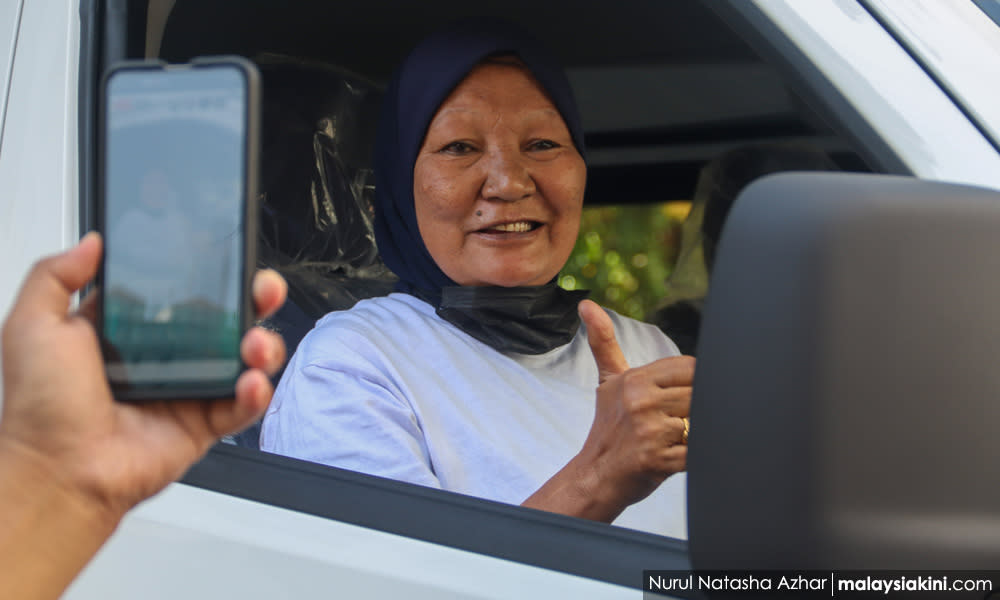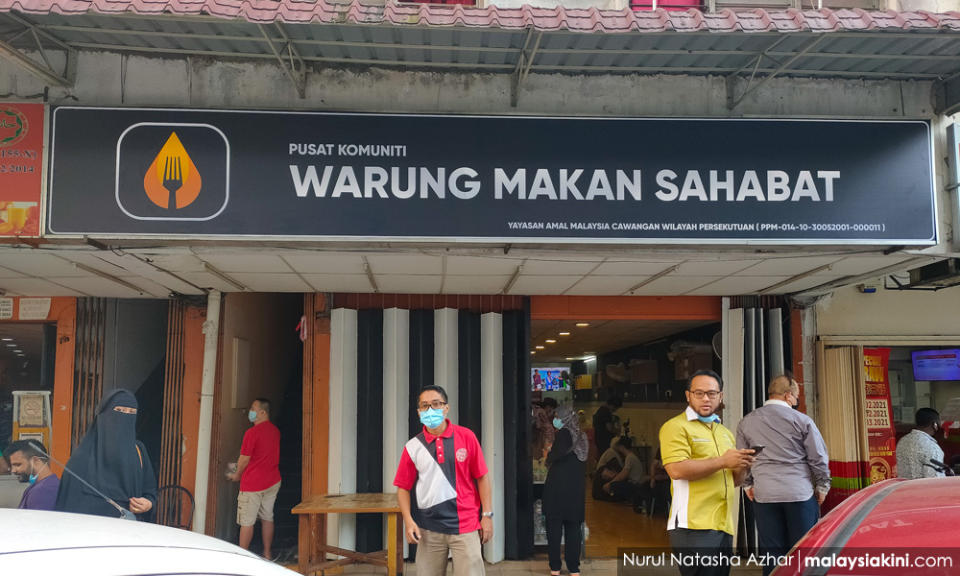Mak Wan's 'dark past' inspires her to serve Chow Kit homeless

A woman’s determination in keeping the Warung Makan Sahabat community centre up and running offers proof that people can recover from drug addiction and go on to contribute to society.
Wan Kamariah Daud, who is fondly known as Mak Wan, 69, came to Kuala Lumpur with her husband when she was only 11 years old.
However, her husband was given a mandatory death sentence for getting involved with a drug syndicate.
After serving time in jail herself and living alone, Mak Wan decided to return home to Kelantan, but was disowned by her family and ostracised by the local community.
“After that, I continued to stay in Jalan Chow Kit, Kuala Lumpur and continued to abuse drugs for 40 years,” she told Malaysiakini in a recent interview.
Throughout the interview, she shared stories of her deplorable living conditions – stealing, scavenging food from rubbish bins, and sleeping rough in the alleys. All this stemmed from her drug addiction.
For Mak Wan, prisons and drug rehabilitation centres had become her “second home” after multiple trips in and out of these facilities. She eventually grew tired of her life choices and tried to kill herself.
“I’ve tried jumping into a river, taking many injections. Sometimes I wished for a swift death,” she said.
However, during her last round of rehabilitation, she said she had taken 10 years to steel herself and face mainstream society again.
“After coming out of that place, I went to Chow Kit. There is no other place for me,” she added.
This time, she was determined to change her ways by taking on various jobs to support the high cost of living in Kuala Lumpur.
“I earned a living by collecting cans and boxes, cleaning toilets, delivering leaflets to mailboxes, cleaning hotel rooms, and eventually landed a job with the Malaysian AIDS Council to spread awareness about the dangers of HIV and AIDS,” she said.

She lived above Warung Makan Sahabat’s premises, and later started making kuih (traditional dessert) to sell to shops when old age began to take its toll on her body.
It was then that Mak Wan thought of preparing food and giving it away to her friends for free.
“If there is leftover rice, I would fry it, pack it, and send it to friends.”
She explained she did not want to see her friends face the hardship of looking for food in dirty places.
Thus, she set up Warung Makan Sahabat with the help of three others – Harun Abu Bakar, Maryam Salwany and Muhd Syafiq.

The community centre does not only provide free food, but offers Quranic studies classes, counselling sessions, and education for all stratum of society.
Warung Makan Sahabat even offers the services of a free hearse (van jenazah) to help the local community with funerals.
“Now, many volunteers come on the weekends to cook and prepare food. On normal days, we can order from single mothers or food providers,” Mak Wan said.
Warung Makan Sahabat provides job opportunities for single mothers to help them generate income.

Mak Wan explained that out of the many volunteers helping to prepare and distribute free food at Warung Makan Sahabat, some of them had also recovered from drug addiction themselves.
“We want these people to be role models and provide a strong moral support system for people looking to recover from drugs,” she said.
She added that recovered persons often faced social stigma for their past drug addiction.
“People don’t believe it, we can’t even mention it. We can’t work, can’t become security guards. How do we make a living?” she lamented.
Because of such societal views, she opened Warung Makan Sahabat to all, especially for recovered persons to do charity work.

During the interview, one of the volunteers, Zaidi Sulaiman, expressed gratitude for the opportunity to help those who are less fortunate.
This "recovered person" shared that the initiative not only gives opportunities for volunteers to help people recover from drug addiction, but also improve themselves.
By including recovered persons as volunteers, they can build social relations and boost their self-confidence in facing broader society.
“In this community of volunteers, some are outsiders and some are former drug addicts. When they join programmes like this together, there is warmth and community integration,” he said.
Such community integration would strengthen former addicts’ resolve to change their lot, he added.
Meanwhile, Malaysiakini also spoke to a senior citizen known as Mariatun who frequented the community centre’s programmes.
“I would get a meal from Mak Wan if I have no food. On Wednesday and Thursday nights, I study here,” she said.
Mariatun said Mak Wan often wandered the Chow Kit area and invited people to join religious classes.
“To me, my efforts are very beneficial to others,” she said.
Towards the end of the interview, Mak Wan expressed her wish to turn the whole shoplot into "Kompleks Sahabat" equipped with a transit home, educational facilities, and other amenities like a surau and free emergency transport.
Her dark past has driven her to continue serving the marginalised communities.
Alongside her friends, Mak Wan has provided help for the homeless and recovering drug addicts, as well as transgender people, senior citizens, and the poor, and inspired others to do the same.


